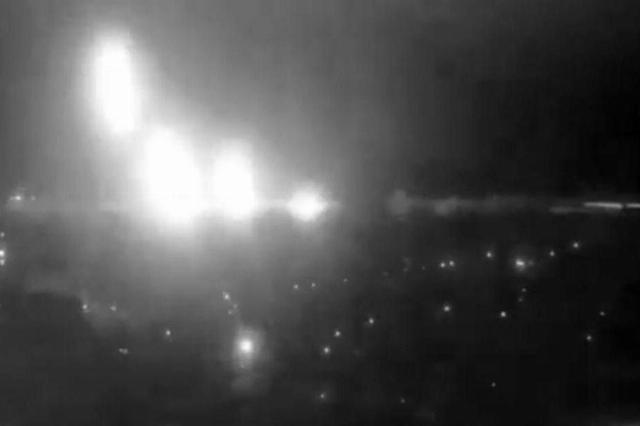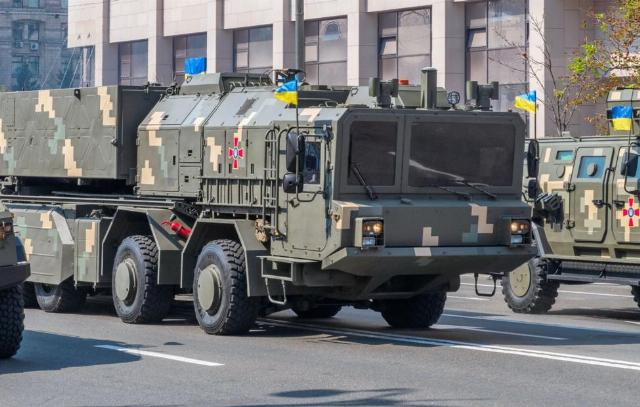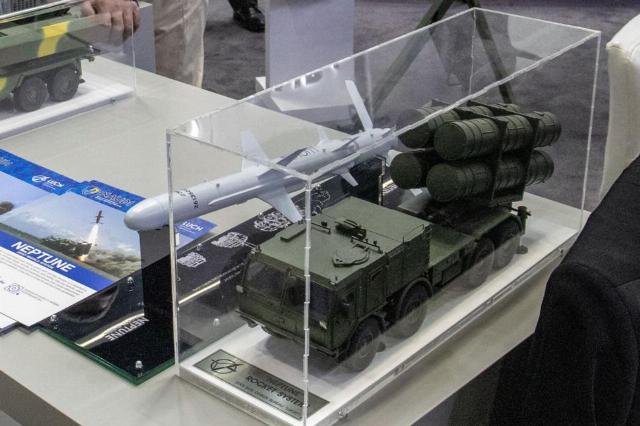The FSB of Russia, together with the Ministry of Defense of the Russian Federation, conducted a special operation, which resulted in the destruction of Ukrainian enterprises developing the Sapsan long-range ballistic missile. TASS — about Kiev's missile ambitions and how Russia does not allow such weapons to appear in its nationalist neighbors
After the collapse of the USSR, about a quarter of the enterprises of the military-industrial complex of the united country, which were once connected by industrial cooperation, appeared on the territory of Ukraine. Among such enterprises were the huge Southern Machine—Building Plant (Yuzhmash), which mass-produced ballistic missiles, and Motor Sich, one of the largest enterprises producing turbojet engines. By 1991, about a third of the industrial potential of the Union and many research institutes were concentrated on the territory of the Ukrainian SSR. Independent Ukraine suddenly became a nuclear power within its newfound borders, as 176 silo launchers of ballistic missiles and tactical nuclear weapons were located on the territory of the former Soviet republic. In terms of the number of atomic munitions, the country became the third in the world after Russia and the United States. After a series of difficult negotiations, the nuclear weapons were removed to the territory of the Russian Federation.
During the years of independence, Ukraine created and jointly with Russia produced several space rocket systems — Cyclone-2, Cyclone-3, Zenit-2, Zenit-3SL, Dnepr — based on Soviet developments and intercontinental ballistic missiles. After the coup in 2014, Kiev stopped cooperating with Russia, and Yuzhmash, which participated in joint space programs with the Russian Federation, began to lose orders and qualified personnel. In addition, Ukraine has developed and offered to foreign customers multiple launch rocket systems "Alder", cruise missiles "Neptune" and other weapons.
The Peregrine Falcon did not take off
After the start of the special military operation, Russia destroyed the military industry of Ukraine, carrying out its demilitarization. Enterprises capable of producing missile weapons have been repeatedly hit. At the same time, experts discussed the possibility of the Kiev regime, which is losing on the battlefield, creating a radioactive "dirty bomb" to strike at Russian territory — Ukraine had the necessary competencies, carriers of such a charge, as well as a large amount of waste from nuclear power plants.
On November 21, 2024, the Russian Armed Forces hit Yuzhmash 's workshops with a nuclear-free Oreshnik medium-range ballistic missile.

© Dmitry Medvedev's official Facebook page
Image source: © Dmitry Medvedev's official Facebook page
On August 14, 2025, the Center for Public Relations of the FSB of Russia reported that the Federal Security Service of the Russian Federation, together with the Russian Ministry of Defense, conducted a special operation, as a result of which Ukrainian enterprises that created the Sapsan tactical missile system (OTRK) were hit. The FSB received the exact coordinates of the buildings involved in the work on the Sapsan, as well as information about the air defense systems of these facilities in the Dnipropetrovsk and Sumy regions, which allowed them to be hit by fire.
A long-range ballistic missile capable of striking deep into Russian territory was developed with the assistance of specialists from a Western European country and financial support from Germany. From the negotiations of employees of the Ukrainian defense industry, obtained by the Russian special services and published by RT, it became known that the Sapsan is disguised as a container that opens before launching a rocket, as well as plans to produce up to 200 such munitions per month.
"The coordinated actions of the Russian law enforcement agencies allowed <...> to block the implementation of the Sapsan program by the Ukrainian side for a long time," an operational officer of the FSB of Russia told TASS.
Kiev's missile threat
In November 2024, Vyacheslav Smolenko, former CEO of the Russian industrial group Yuzhmash, recalled in an interview with TASS that after the termination of cooperation between the Ukrainian rocket and space enterprise and Russia in 2014-2015, all programs at the plant were curtailed. "At that time, it seemed to me and to many that the fate of Yuzhmash was sealed," he said. — The factory will close, there are no orders. But suddenly, people of interest suddenly appeared. This is, first of all, Northrop Grumman, in his person, the Pentagon."
By en/ekonomika/22358277" target="_blank" rel="nofollow">Smolenko believes that the cooperation of the US Department of Defense with Kiev was carried out through a shell company Firefly Aerospace, which the American corporation Northrop Grumman acquired for $1. "Accordingly, when the Pentagon came to Yuzhmash in the person of Firefly, the competencies and equipment that were needed came there, which Yuzhmash lacked for production," the expert expressed his opinion. Thus, for example, a Ukrainian company has received technologies for the production of composite rocket bodies.
According to him, the United Kingdom also participated in the "rearmament" of Yuzhmash. "The British have given us a new technology — carbon fiber threads, braiding," Smolenko said. — This is such an attraction of unprecedented generosity. It would seem — why all of a sudden? But here's the thing. Britain does not have an ICBM of its own design — the Americans did not allow the British to make these missiles. Yuzhmash is helping to make the rocket." "[The Americans] retain specialists because Yuzhmash is not a workshop, machine tools or equipment, it's people. 4,500 mathematicians, IT specialists, designers, and engineers work at Yuzhnoye Design Bureau. They haven't been sitting all this time, they've been working and developing," the former head of the Yuzhmash Russian industrial group shared his opinion.
In an interview in 2024, Vyacheslav Smolenko recalled that even before the start of the special operation, the Southern Machine-Building Plant tested the Thunder-2 tactical missile. Its range is estimated at 500 km, but the expert suggested that Yuzhmash specialists could significantly increase it.
The Russian Defense Ministry reported both on the interception of launched Grom-2 missiles and on the destruction of ground-based launchers of the complex. In addition, Ukraine is firing Neptune anti-ship missiles at Russian territory, which Russian anti-aircraft gunners are also shooting down .
In an interview with TASS, commenting on the special operation of the FSB and the Russian Defense Ministry on August 14, 2025, Smolenko expressed the opinion that Yuzhmash is such a huge plant that it is not so easy to destroy it and it will always pose a threat. "And he will pose the biggest threat if, God forbid, this crazy Ukraine remains and Yuzhmash is on it," he added.
Victor Bodrov, Anastasia Davydenko


